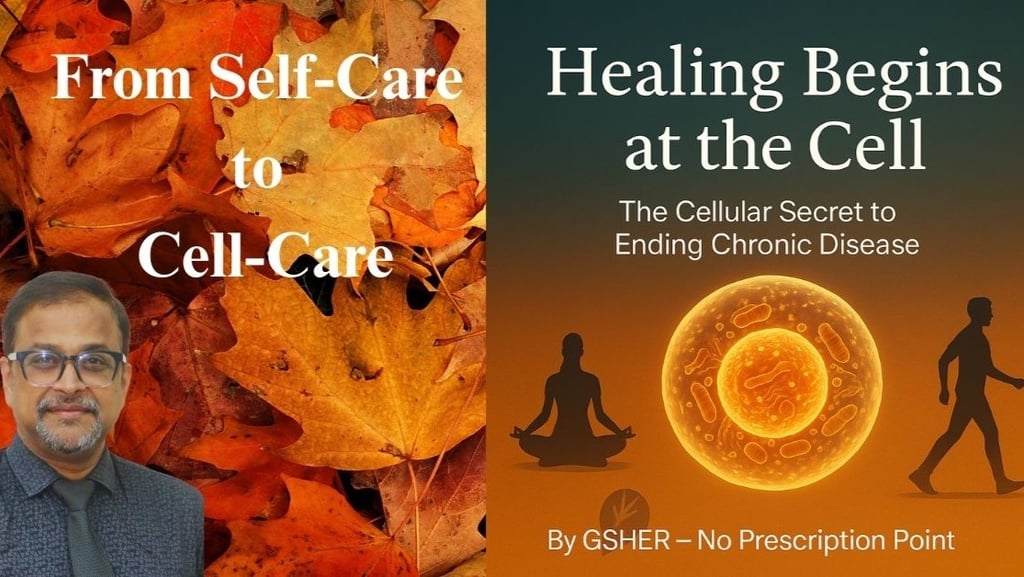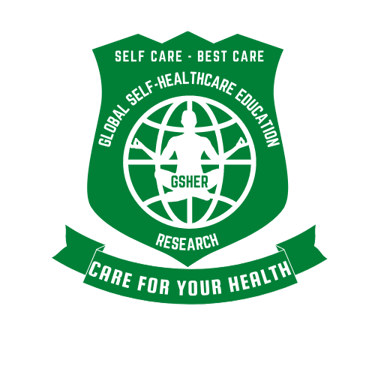

Why Your Health Depends on the Shift: An Intense Conversation between Me and Srikant.
It was late evening when Srikant walked into my consultation room. He looked polished, the way corporate executives often do, neatly pressed shirt, confident stride, phone buzzing with notifications he tried to ignore. But his eyes betrayed him. They carried the weight of years of fatigue, stress, and a growing fear he could not quite name.
“Doctor,” he began, almost apologetically, “I’m doing everything they told me to. I take my medicines on time, I go for my morning walk, and I’ve even cut down on sweets. But still, my sugar isn’t steady, my blood pressure keeps spiking. Am I… missing something?”
I smiled gently. His question was not uncommon. But the answer, though simple, was often overlooked.
“Srikant,” I said, “you’re not missing something small. You’re missing something fundamental. You’re practicing self-care, but you haven’t yet stepped into cell-care.”
He raised his eyebrows. “Cell-care? What’s that supposed to mean?”
“Let’s start with what you already know,” I explained. “Self-care is what you’ve been doing: keeping wounds clean, staying active, taking medicines, watching your diet, and noticing when something feels off. It’s essential. It prevents crises.
But self-care is like keeping your car washed, your tires inflated, and your petrol tank filled. All necessary. Yet what if the engine oil is slowly burning out? What if the wiring inside is corroding? The car may look fine—until one day, it doesn’t move.”
He nodded slowly. “So, you’re saying I’m just scratching the surface?”
“Exactly. Self-care keeps you running. But health doesn’t break down at the surface. It breaks down at the cellular level. And that’s where cell-care begins.”
I leaned forward. “Your body is made of nearly 40 trillion cells. They are your true workforce, microscopic employees running every function of your life. Each cell listens, responds, and adapts to the signals it receives.
“And where do these signals come from? Not just food or medicine, but through your five entry points—your five senses.
What you see every day: Stress-filled emails or calming nature.
What you hear: Harsh arguments or uplifting music.
What you smell: Polluted air or fresh, clean environments.
What you taste: Refined sugar or nourishing foods.
What you touch: Tense handshakes, tense muscles, or mindful relaxation.
“These senses continuously feed your cells with information. Your brain translates it into hormones and chemical signals. And your cells adjust accordingly.”
Srikan frowned. “So, you mean my cells are actually listening to my lifestyle?”
“Yes,” I said firmly. “Every thought, every meal, every breath, your cells hear it all. That’s why diseases like diabetes and hypertension are not just about sugar and salt. They’re about the environment you create inside your body.”
“Doctor,” he said hesitantly, “but isn’t diabetes genetic? My father had it, my uncles have it. I always thought it was inevitable.”
I shook my head. “That’s the old story. The new story is epigenetics.
While you inherit genes, their expression is not predetermined. Instead, genes act like light switches, capable of being activated, deactivated, brightened, or dimmed. This cellular signaling is influenced by factors such as stress, nutrition, thoughts, and exercise, all of which determine whether disease-related genes become active or remain dormant.
“So, Srikant, you are not a victim of your DNA. You are the architect of your biology.”
His eyes widened. “That changes everything. It means I can do something about it.”
“Exactly,” I said. “That’s what Cell-Care is all about.”
To know more about Cell-Care, join GSHER's CelluReva and read Part II Next week.
